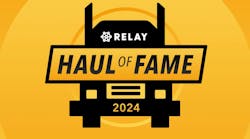“When truck owners bring their vehicles in for rebuilding, the Moyer fund subsidizes for the added cost of bringing that engine up to cleaner specs,” said Jerry Martin, spokesperson of the California Air Resources Board (CARB). “Ultimately the driver comes out with a newer, better engine.”
The steady flow of income would stem from California residents owning cars or light trucks that are six years old or newer. These residents, who are exempt from the state’s two-year emissions and maintenance inspections, would pay an annual “smog abatement fee” of $12, doubled from the current $6 fee. Currently, vehicles up to four years old are exempt.
The cash infusion into the fund would revive the program, which was put out of commission in 2001 after it spent all of its one-time $45 million allotment.
The Diesel Technology Forum (DTF) had issued a statement of support for the proposal, stating that “upgrading these older, durable engines with clean diesel technologies is a win-win approach— the state gets cleaner air and the operator gets better engine performance.”
Alan Schaeffer, DTF executive director, told Fleet Owner that he believes there is enough support behind that section of the budget proposal for it to pass, despite some opposition from environmental constituents.
“One of the comments we’ve seen from some environmental groups is ‘that the polluters should pay,’” Schaeffer said. “In the end that statement is off the mark. The benefits are going to accrue to all residents in the state as they enjoy cleaner air.”
“I personally think the Moyer program has a lot of folks that recognize its value. There is an interest in getting things quickly in California,” Schaeffer said.
Martin said environmental groups, industries, and the public generally support the Moyer program. “This is a program that has traditionally enjoyed huge success from everyone.”
The Carl Moyer program is credited with retrofitting almost 5,000 engines statewide. Diesel engines retrofits in commercial trucks have received a modest slice of the pie. According to the Carl Moyer Program Annual Status Report released in March 2002, of the 4,356 engines retrofitted, 32 were heavy-duty linehaul vehicles, 62 diesel refuse haulers, while another 511 refuse haulers replaced diesel engines with engines running on propane. Overall heavy-duty linehaul engines received just over 1% and refuse haulers claimed 22% of the program’s total $76.1-million budget. The lion’s share of the money went to upgrading agricultural vehicles.
Martin believes that the large number of refuse haulers converted to alternative fuel is a result of South Coast Air Quality Management District (SAQMD) rules prohibiting fleets from purchasing most diesel-powered vehicles, recently overturned by the U.S. Supreme Court. (See )
DTF’s Schaeffer noted that the program’s focus on the agricultural sector reflects its reliance on older and significantly dirtier engines than that of the commercial trucking industry. Martin said that the allocation of any new money would be determined by the regional environmental agencies.


